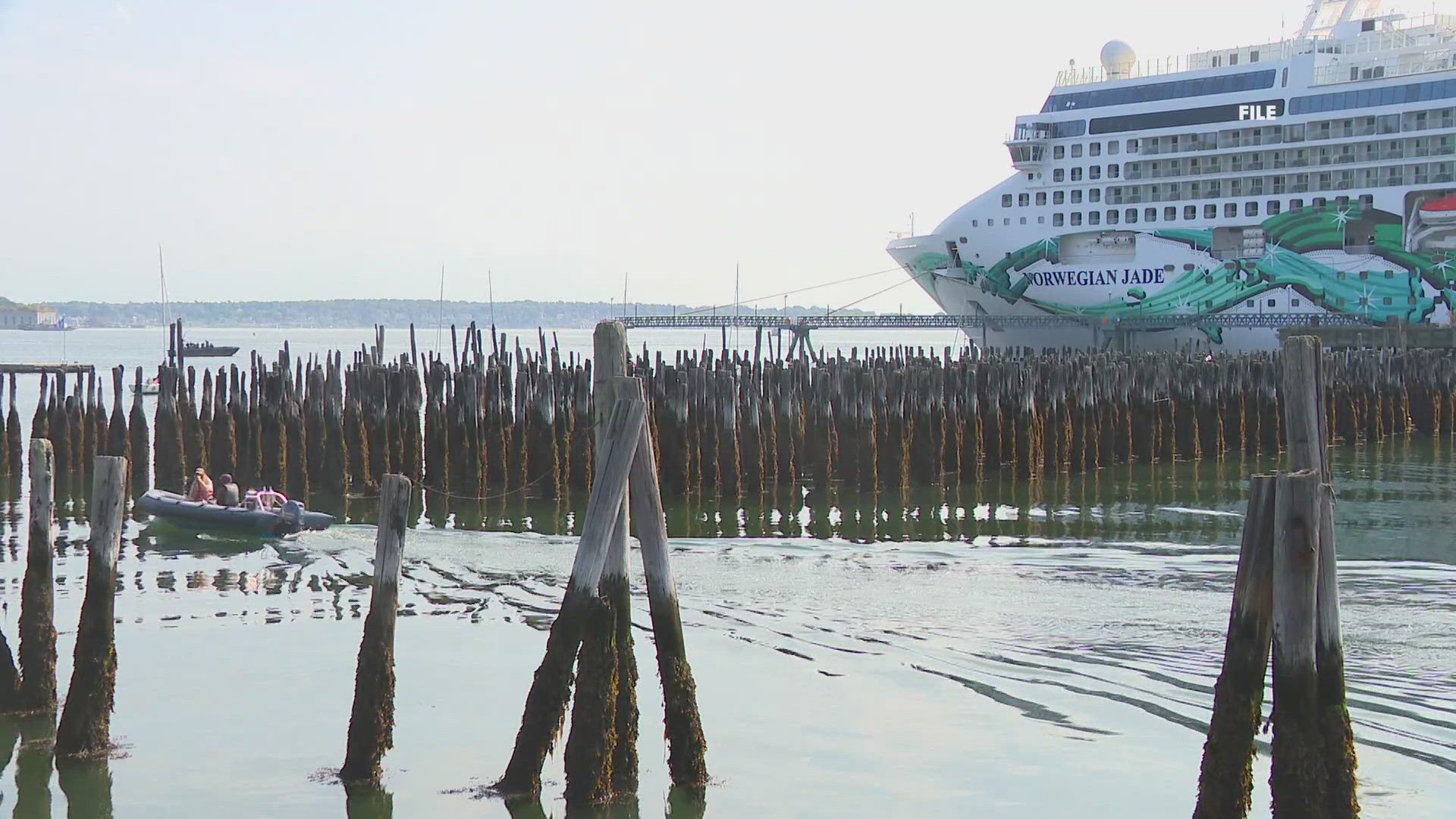PORTLAND, Maine — Maine is taking steps toward reducing emissions at its busiest ports—Portland, Searsport, Rockland, and Eastport—after receiving a $1 million grant from the Environmental Protection Agency (EPA).
The funding will allow the Maine Department of Transportation (Maine DOT) to study the feasibility of electrifying the ports, enabling docked ships to use shore power instead of diesel engines.
Ports are critical for moving goods worldwide, but their diesel-powered operations significantly impact human health and contribute to climate change, said David Cash, the EPA’s New England Regional Administrator (Region 1).
“The emissions from boats at ports effects air quality," Cash said.
Electrifying ports would allow ships to shut off their diesel engines while docked and rely on electricity for operations, reducing harmful emissions and improving air quality.
“We’re going to see emission reductions that will help the climate crisis," Cash added. "Kids in the community will breath better, older folks won’t have as many breathing issues, parents won’t have to take their kids to the hospital for asthma attacks.”
The study, overseen by the Maine DOT, will look into reducing pollution from diesel-powered ships and providing cleaner energy alternatives through shore power systems.
Deputy Director Matthew Burns noted that changes would likely be required to Maine’s power grid to support the increased demand. For example, Portland’s cruise ship terminal, which can host up to three ships at once, would need about 25 megawatts of electricity. That's enough to power 25,000 homes. In 2024, approximately 150 cruise ships docked in Portland alone, highlighting the potential impact of electrification.
While the project would involve significant costs, according to the Maine DOT, officials believe it’s crucial to explore the potential benefits. “Now’s definitely the time for Maine to at least investigate it,” Burns said.
This study marks the first step in what could become a transformative effort to modernize Maine’s ports and significantly reduce their environmental impact.

